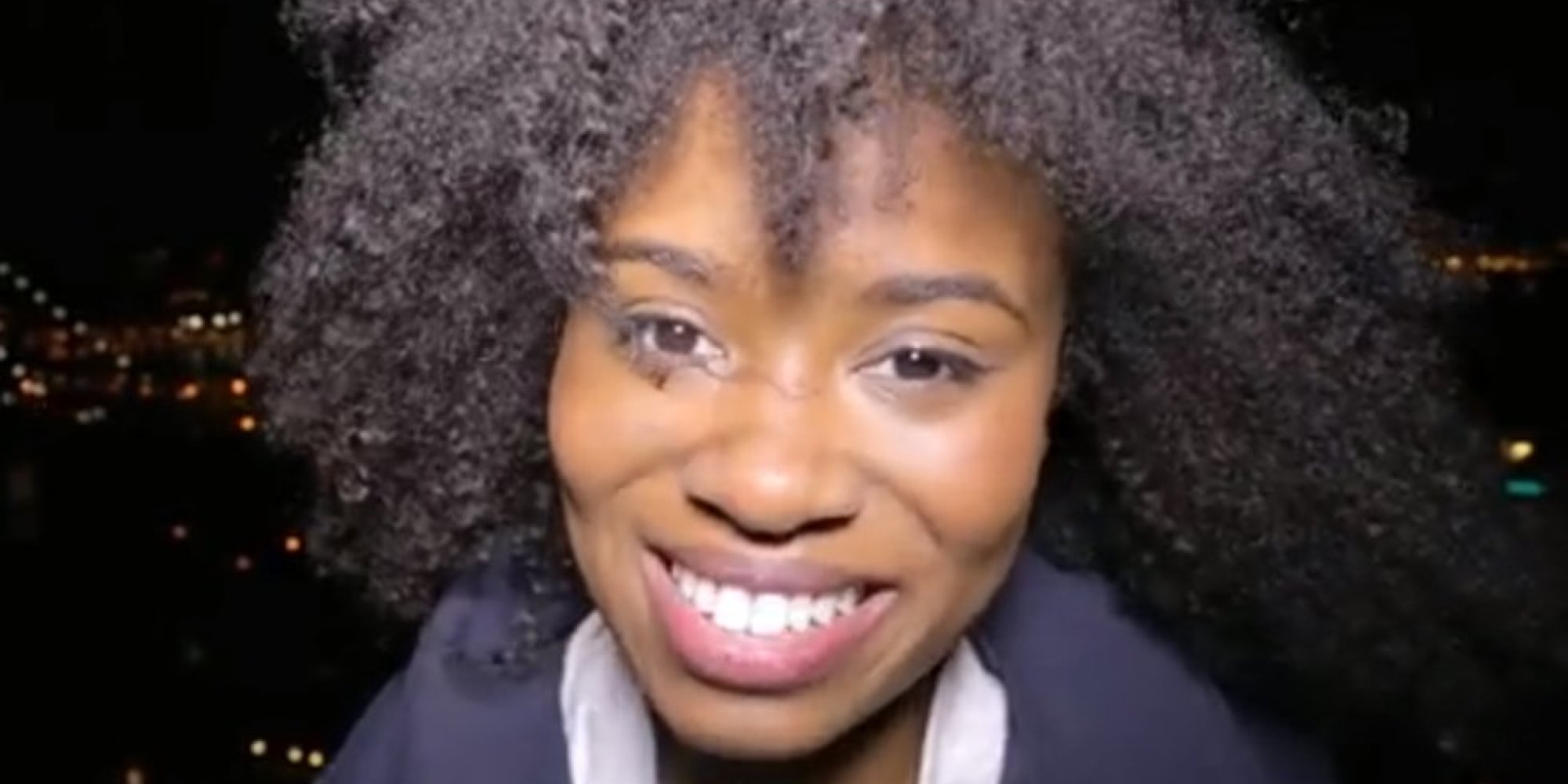
Meet NYC-based writer and comedian, Akilah Hughes. She is your first black
girlfriend. Akilah has a few things to say in the ways of love, interracial
dating, and how to treat women who are, black, but first and foremost, human.
In an email
Akilah told The Huffington Post that the video was inspired by her own
experiences being in an interracial relationship, and dealing with the
frustrations that come with having to educate a partner in what is acceptable
treatment, and what is not.
"...there
is so much unspoken common ground in those relationships. Anything to do with
hair maintenance is always going to be a long drawn out conversation where the
boy may or may not ever really understand what you mean by "oiling your
scalp" or "protective styling," Akilah tells The Huffington
Post.
In an effort to create a kind of guide, and to spare some future
akwardness for those entering interracial relationships, Akilah put together
this video along with editor Tim Knight.
In it, she
covers everything from the exoticization of black women, to hair, to fried
chicken stereotypes, to white guilt, to how she feels about the N word -- Never
ever say it. Just don't.
 I think Black women are
exoticized in interracial relationships because the media only portrays Black
women in a few ways, while other races tend to get more options. The media mold
for a young Black woman is very limited--must be extremely aggressive,
commandeering, unintelligent, etc.--while that has not been the case with the
overwhelming majority of Black women I've met from all different backgrounds.
Truthfully, I think more Black women would feel comfortable dating outside of
their race if that wasn't the case, because it's one thing to have a TV show or
movie that doesn't know you see you in that negative light--it's quite another
to find out that your significant other does as well. When media starts to
reflect the actual world we inhabit instead of aiming to create it, I'm sure there
will be greater understanding in interracial relationships.
I think Black women are
exoticized in interracial relationships because the media only portrays Black
women in a few ways, while other races tend to get more options. The media mold
for a young Black woman is very limited--must be extremely aggressive,
commandeering, unintelligent, etc.--while that has not been the case with the
overwhelming majority of Black women I've met from all different backgrounds.
Truthfully, I think more Black women would feel comfortable dating outside of
their race if that wasn't the case, because it's one thing to have a TV show or
movie that doesn't know you see you in that negative light--it's quite another
to find out that your significant other does as well. When media starts to
reflect the actual world we inhabit instead of aiming to create it, I'm sure there
will be greater understanding in interracial relationships.
A long history of racial tension has led to an exoticized image
of black woman in the media, a form of attraction feminist, social activist and
African-American author bell hooks calls "Eating the Other"-- the idea that racial differences in mass
culture are oftentimes not celebrated, but instead commodified.
"Within
commodity culture, ethnicity becomes spice, seasoning that can liven up the
dull dish that is mainstream white culture," hooks wrote in an essay on
the topic.
As a result,
the "Othered" black woman is classified as a hyper-sexual temptress,
an image that can consciously or subconsciously seep its way into real life
relationships creating stereotypes and unrealistic expectations of black women.
While videos like these help to educate and serve as a springboard for
conversation, we, as a society, still have a long way to go before this problem
no longer exists.
No comments:
Post a Comment